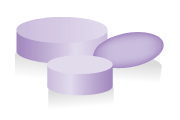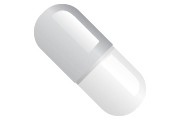Methylphenidate for ADHD
This leaflet is for parents and carers about how to use this medicine in children. Our information may differ from that provided by the manufacturers, because their information usually relates to adults. Read this leaflet carefully. Keep it somewhere safe so that you can read it again.
Do not stop giving this medicine without talking to your doctor first.
Name of medicine
Methylphenidate (sometimes known as methylphenidate hydrochloride)
Brand names: Medikinet, Ritalin
Modified-release brands: Concerta XL, Equasym XL, Matoride XL, Xaggitin XL, Medikinet XL, Delmosart prolonged release, Xenidate XL
Why is it important for my child to take Methylphenidate?
This medicine will help to reduce the symptoms of hyperactivity and impulsive behaviour. It will also help to increase attention and concentration span. Methylphenidate is used as part of a comprehensive treatment programme for ADHD that includes behavioural therapy.
What is Methylphenidate available as?
- Tablets: 5 mg, 10 mg, 20 mg; these contain small amounts of lactose; Ritalin contains gelatin.
- Modified-release tablets: 18 mg, 27 mg , 36 mg, 54 mg; these may contain lactose
- Modified-release capsules: 5 mg, 10 mg, 20 mg, 30 mg, 40 mg, 50 mg, 60 mg; these contain gelatin and a small amount of sugar.
When should I give Methylphenidate
Modified-release tablets/capsules are usually given once each day. This is usually in the morning. These gradually release the medicine over the day.
- Equasym XL is best given before breakfast.
- Medikinet XL is best given with or after breakfast.
Medikinet and Ritalin tablets are usually given two or three times each day. This should be in the morning, then around midday and, where necessary, late afternoon. Ideally, these times are about 4 hours apart. Give the medicine at about the same time each day so that this becomes part of your child’s daily routine, which will help you to remember.
How much should I give?
Your doctor will work out the amount of Methylphenidate (the dose) that is right for your child. The dose will be shown on the medicine label.
Your doctor may suggest that your child starts with a low dose. They may then increase the dose as your child gets used to the medicine and depending on how they respond to it. Your doctor will explain what to do. If you are not sure how much to give, check with your doctor, nurse or pharmacist.
It is important that you follow your doctor’s instructions about how much to give.
How should I give Methylphenidate?

Tablets
- Tablets should be swallowed with a glass of water, squash, or juice. Your child should not chew the tablets.
Medikinet and Ritalin tablets can be crushed and mixed with a small amount of soft food such as yogurt or jam. Make sure your child swallows it all straight away, without chewing. - Do not crush any modified-release (XL) tablets, as they will not work properly.

Capsules
- Capsules should be swallowed with a glass of water, juice, or squash. Your child should not chew the capsule. You can open the capsule and mix the contents with a small amount of soft food such as yogurt, honey or jam. Make sure your child swallows it straight away, without chewing.
When should the medicine start working?
The medicine will start to work within 30 to 60 minutes, depending on which type of tablet or capsule your child has.
What if my child is sick (vomits)?
- If your child is sick less than 30 minutes after having a dose of Methylphenidate, give them the same dose again.
- If your child is sick more than 30 minutes after having a dose of Methylphenidate, do not give them another dose. Wait until the next normal dose.
If your child is sick again, seek advice from your family doctor, nurse, pharmacist, or hospital. They will decide what to do based on your child’s condition and the specific medicine involved.
What if I forget to give it?
If you miss a dose, wait until the next normal dose. Do not give the missed dose.
Never give a double dose of Methylphenidate.
What if I give too much?
If you think you may have given your child too much Methylphenidate, contact your doctor or local NHS services (details at end of leaflet) or take your child to hospital. Have the medicine container or packaging with you, even if it is empty. This will be useful to the doctor.
It may be dangerous to give too much Methylphenidate.
Are there any possible side effects?
We use medicines to make our children better, but sometimes they have other effects that we don’t want (side effects).
Side effects you must do something about
Your child may become irritable, aggressive, tearful or depressed. These effects are temporary and reverse on stopping treatment. You should contact your doctor as soon as possible. If you are worried, do not give any more Methylphenidate until you have talked to your doctor.
If your child has an irregular or fast heart rate (fluttery or racing), contact your doctor straight away.
If your child is prone to tics (sudden muscle twitches of the face or body), Methylphenidate may make these worse.
Your child may feel dizzy or light-headed when they stand up, or may faint. Encourage them to stand up slowly, and to sit or lie down if they feel dizzy or light-headed. If this happens often, contact your doctor who may need to check your child’s blood pressure.
Your child may lose weight during the first few months of treatment. If you are concerned, contact your doctor.
Your child may have less appetite. It may help to give each dose of Methylphenidatee with or after a meal. If your child is taking Equasym XL check with your doctor or pharmacist before giving with a meal as it should usually be given before breakfast.
Other side-effects you need to know about
- Your child may get indigestion, stomach ache, feel sick (nausea) or be sick (vomit). Giving the medicine with some food or milk may help. If your child is taking Equasym XL, check with your doctor or pharmacist before giving it with food.
- Some children may get a dry mouth when they first start taking methylphenidate. Eating citrus fruits (e.g. oranges) and taking sips of water may help. This effect usually settles down quite quickly
- Your child may have a blocked nose more often whilst taking methylphenidate. Usually this does not need treatment and will get better on its own.
- Your child may have problems sleeping. This can be helped by taking the last dose of methylphenidate at least 6 hours before bedtime.
- They may get a mild headache or pain in their muscles or joints.
- Occasionally boys can get a prolonged erection while taking methylphenidate. Contact your doctor if an erection lasts for longer than 2 hours, especially if it is painful
Your child’s hair may become thinner and some may fall out. It should grow back when the medicine is stopped. Discuss this with your doctor at your next visit.
There may sometimes be other side effects that are not listed above. If you notice anything unusual and are concerned, contact your doctor. You can report any suspected side effects to a UK safety scheme at mhra.gov.uk/yellowcard
Can other medicines be given at the same time as Methylphenidate?
- You can give your child medicines that contain paracetamol or ibuprofen, unless your doctor has told you not to.
Check with your doctor or pharmacist before giving any other medicines to your child. This includes herbal and complementary medicines.
- Methylphenidate should not be taken with some medicines. Tell your doctor or pharmacist about any other medicines your child is taking, or has taken in the last 2 weeks, before giving Methylphenidate.
Is there anything else I need to know about this medicine?
It is important that your child always has the same brand of Methylphenidate, as there may be differences between brands. Keep a record of which medicines your child has.
- Your doctor will check your child’s blood pressure regularly while they are taking Methylphenidate.
- Methylphenidate can affect the ability to do skilled tasks such as riding a bicycle, playing sports or driving. Your child should take care when doing tasks that require co-ordination until they get used to the medicine.
- If your daughter thinks she may be pregnant, she should see her doctor as soon as possible but continue taking Methylphenidate in the meantime.
- Methylphenidate may affect the growth of some children. Your doctor will monitor your child’s growth.
General advice about medicines
- Only give this medicine to your child. Never give it to anyone else, even if their condition appears to be the same, as this could do harm.
- Make sure that you always have enough medicine. Order a new prescription at least 2 weeks before you will run out.
- Make sure that the medicines you have at home have not reached the ‘best before’ or ‘use by’ date on the packaging. Give old medicines to your pharmacist to dispose of.
- If you are not sure a medicine is working, contact your doctor but continue to give the medicine as usual in the meantime. Do not give extra doses, as you may do harm.
If you think someone else may have taken the medicine by accident, contact your doctor straight away.
Where should I keep this medicine?
- Keep the medicine in a cupboard, away from heat and direct sunlight.
- Make sure that children cannot see or reach the medicine.
- Keep the medicine in the container it came in.
Who to contact for more information?
Your child’s doctor, pharmacist or nurse will be able to give you more information about Methylphenidate and about other treatments for ADHD.
England: NHS 111
Tel 111
www.nhs.ukScotland: NHS 24
Tel 111
www.nhs24.scotNorthern Ireland: NI Direct
Wales: NHS 111 Wales
Tel 111
www.111.wales.nhs.ukADDISS (ADHD Information Services)
020 8952 2800
www.addiss.co.uk/Copyright disclaimer
Version [3]. © NPPG, RCPCH and WellChild, all rights reserved. Review by October 2022.
The primary source for the information in this leaflet is the British National Formulary for Children. For details on any other sources used for this leaflet, please contact us through our website, www.medicinesforchildren.org.uk.
We take great care to make sure that the information in this leaflet is correct and up-to-date. However, medicines can be used in different ways for different patients. It is important that you ask the advice of your doctor or pharmacist if you are not sure about something. This leaflet is about the use of these medicines in the UK, and may not apply to other countries. The Royal College of Paediatrics and Child Health (RCPCH), the Neonatal and Paediatric Pharmacists Group (NPPG), WellChild and the contributors and editors cannot be held responsible for the accuracy of information, omissions of information, or any actions that may be taken as a consequence of reading this leaflet.
